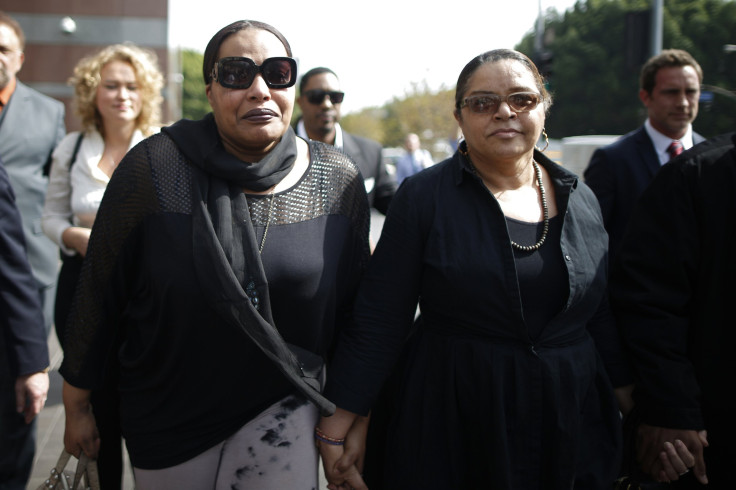Is Pharrell Williams' ‘Happy’ Also Copied From Marvin Gaye? 'Blurred Lines' Duo To Contest $7.4M Verdict

Marvin Gaye’s family has alleged that Pharrell Williams' hit song “Happy” is similar to one of the late singer’s songs, media reports said Wednesday. The news comes a day after Williams and Robin Thicke lost a copyright infringement case over their song, “Blurred Lines.”
Janis, Gaye’s ex-wife, said that the family would not want to get involved in another legal case with Williams and stated that, instead, they would like the 41-year-old to perform at a tribute show, according to U.K.'s Mirror. They said that "Happy" is similar to Gaye's song, "Ain't That Peculiar."
Gaye's daughter, Nona, reportedly said: "I'm not going to lie. I do think they sound alike," adding that they won't be going back to the courtroom anytime soon, as they're "not in that space," Yahoo News reported.
On Wednesday, Williams and Thicke's lawyers said they will contest the $7.4 million verdict over "Blurred Lines." Gaye’s children had sued the duo and rapper T.I., claiming they used musical elements from their father’s 1977 hit “Got to Give It Up” without permission. Williams, who reportedly earned $5.2 million from the song, had argued that while there’s a similar “feel” between Gaye’s Motown hit and “Blurred Lines,” it was not a copy.
Attorney Howard King said, according to Reuters, that Thicke and Williams held their ground that "Blurred Lines" is an original creation.
"Based upon their own feelings that they created 'Blurred Lines' from their own hearts and souls and no one else, and based on feedback from other prominent songwriters, (Thicke and Williams) feel they owe it to the creative world to make sure this verdict does not stand," he reportedly said.
Last week, Williams had told the jury that he tried to evoke the emotions of Gaye’s music, and that he "must have been channeling that feeling, that late-’70s feeling."
Although Thicke received a songwriting credit for the hit, he admitted earlier in the trial that Williams “wrote almost every part of the song.”
© Copyright IBTimes 2025. All rights reserved.





















